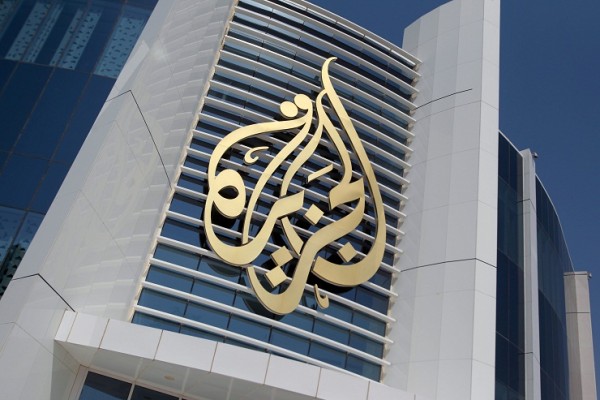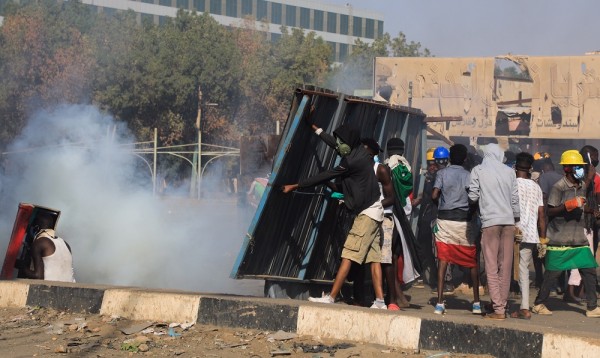IPI is concerned about a recent trend of censorship through the confiscation of newspapers in Sudan.
The Sudanese authorities confiscated the fourth issue of Al Midan in a row on March 20, and have also banned two journalists for Alwan, Mujahid Abdullah and Essam Jaafar, from writing for any Sudanese newspaper, according to the Arabic Network for Human Rights Information (ANHRI). The group reported that the National Intelligence and Security Services (NISS) told the editor-in-chief of Al Wan newspaper that they were unhappy with the publication and its journalists, a few weeks prior to the raid.
Abdelgadir Mohammed Abdelgadir, a freelance journalist and press freedom consultant based in Khartoum, told IPI in a phone interview that the moves were not isolated.
In 2012, newspapers have been seized and confiscated at an alarming rate. Al Midan has been seized five times in March alone, and 10 times since January. Other publications such as Al Ahdath, Alyoum Al Tali, Al-Jareeda, Al Shahid and Al Tayyar have all been confiscated once.
Abdelgadir said that since January the NISS had forced Rai Al Shaa’b, Al Wan, Al Tayyar, and Al Jareeda newspapers to stop publication. Alwan, Al Jareeda and Al Tayyar were only allowed to publish again after accepting NISS orders of pre-publication censorship.
Abdelgadir said: “The NISS in Sudan has a lot of authority, and the NISS abuses its authority to close papers. It also abuses press freedom. NISS marks certain ‘red lines’ for newspapers and orders them not to deal with or write about these ‘red lines’. They include human rights abuses, corruption, the ICC, problems in Darfur and army movements.” He added: “Al Midan is seized because it refuses NISS orders”.
Al Midan is a thrice-weekly publication by the communist opposition in Sudan and according to the Sudan Tribune it was confiscated at least eight times last year for reporting on violence in the Blue Nile and South Kordufan regions and also about the Sudanese People’s Liberation Movement (SPLM-N). It has repeatedly refused to pander to censorship and, according to ANHRI, had recently published articles related to alleged police abuses, including the alleged killing of a girl, by police, as she protested.
Last month Al Tayyar and Alyoum Al Tali were confiscated after publishing articles alleging that security forces had bugged the office of the Islamist opposition leader, Hassan al-Turabi, who is the leader of the Popular Congress Party (PCP), according to the Sudan Tribune. The authorities have also targeted newspapers that they believe to be sympathetic to the PCP, according to the Sudan Tribune; as a result they closed down both Ra’y al Sha’b and Alwan, an independent daily that has been targeted multiple times by the NISS for reporting on various ‘red line’ topics.
Al Tayyar, a private daily newspaper, was also suspended this year because the NISS accused it of destabilising national security. According to AllAfrica, the paper had recently featured a series of articles about corruption.
Other newspapers, such as Alwan and Ra’y al Sha’b, were confiscated after reporting in a positive light about Khalil Ibrahim, the leader of the Darfur rebel movement, the Justice and Equality Movement, who was killed last year, according to reports.
Although there is a Press Act in Sudan which is supposed to guarantee freedom of expression, there are also articles within the Act which are often used to restrict press freedom. Journalists can easily be arrested, detained or fined if they write about corruption or criticise the authorities, under the guise of “spreading false information”, “defamation” or even “disturbing public order”, which can lead to self-censorship.
Moreover, the NISS is tasked with securing the safety of society and as such it has the power to seize property, confiscate assets, arrest people, and interrogate people, as it sees fit. This means that often newspapers are seized or confiscated without an official court order but under the pretext of helping national security. Abdelgadir noted: “This law gives the NISS a lot of authority but it is against the constitution and against the obligations of Sudan under international human rights law, as Sudan signed the ICCPR.”
Last year, the National Congress Party announced that it was considering implementing pre-publication censorship again, according to Index on Censorship. Censorship was enforced in 1989, when the NCP first seized power, and again selectively in 2009 and 2010, according to Index on Censorship. The current press laws are flawed, according to Abdelgadir, as the state has a large degree of control over the press. For example, newspapers must apply to obtain a license to print from the Council of Press and Publications, which is state-run. Even journalists must pass an exam by the Council of Press and Publications and then be registered to work as a journalist.
Worryingly, the NISS already appears to be pursuing a policy of censorship. Every article in a newspaper must be approved by the NISS before it can be circulated. Last year, agents would go to the offices of the newspaper and review the paper with the editor-in-chief. They would demand that certain articles be replaced if they covered sensitive topics, but alternative material was often also rejected. In some cases, such as with Al Midan, so many articles were removed that the newspaper could not be published.
Abdelgadir told IPI that the NISS are pursuing a new strategy and that they phone the editor-in-chief of the newspaper every evening and tell them to review the paper. They also give them a new list of ‘red lines’ that they are not allowed to report on. Abdelgadir explained that many journalists were forced to censor themselves as they needed to earn a living, which they could only do if the newspapers were published and circulated. The NISS often waits until the newspapers have been printed and then they review the newspaper themselves, so when an article is not approved all copies of the newspaper are confiscated. None of the newspapers can be circulated, resulting in a large financial loss. As a result newspapers such as Al Midan and Al Ayyam are facing great financial difficulties and could even be forced to close, according to Abdelgadir, as last week they could not afford to print their issues due to financial problems.
IPI Press Freedom Manager Anthony Mills said: “Press freedom in Sudan is being consistently violated. Journalists in Sudan must have the right to be able to work freely without intimidation from the security services. IPI condemns all attempts to confiscate newspapers.”
After South Sudan’s independence in July 2011, the government stepped up its attack against the press and it closed Ajras Al Hurriya, an Arabic newspaper, and suspended five English newspapers including: the Khartoum Monitor; the Juba Post; the Sudan Tribune; The Advocate; and The Democrat.
After South Sudan became independent, owners and publishers from South Sudan have been regarded as foreigners by the Sudanese government and as a result do not have the right to own media in the north.


